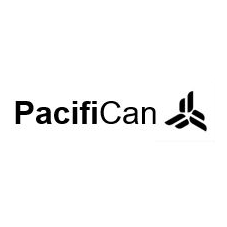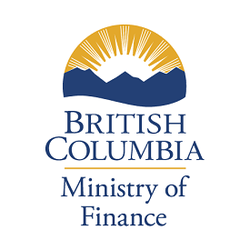
PacifiCan — Regional Economic Growth through Innovation — Regional Innovation Ecosystems
At a glance
- Up to 50% of project cost
- Unspecified
- Agriculture, forestry, fishing and hunting
- Manufacturing
- Information and cultural industries
- Professional, scientific and technical services
- British Columbia
- Non-profit
- Public or Parapublic institution
- For-profit business
- Social economy enterprise
- All revenue ranges
- All organization sizes
- Indigenous Peoples
- Youth (<40)
- Startups
- Women
- Higher Education
- Research
- Economic, Social and Community Development
- Employment and Training
- Business Associations
- Diversity and Inclusion
- Children & youth
- Young adults
- Indigenous peoples
- Women & girls
- Business owners / entrepreneurs
- Academia / students
- All structures
- Municipal
- Regional
- Provincial
- National
Overview
Your not-for-profit organization could get a financial contribution to assist businesses at all stages of development in scaling up and becoming more globally competitive. Investments focus on enhancing business support networks for under-represented groups.
Activities funded
The activities eligible for this grant are geared towards enhancing regional innovation infrastructures, supporting business scale-up, and increasing productivity across various sectors. The projects also aim at fostering inclusivity among historically under-represented groups in the innovation landscape.
- Technology commercialization, including the development and expansion of facilities for specialized business services and innovation.
- Business scale-up efforts focusing on market development, export promotions, and identifying global demand changes.
- Productivity improvement through technology transfer, new technology implementation, and market entry strategies.
- Ecosystem capacity building, involving strategic business alliances and sector-specific strategy development to tackle scale-up barriers.
- Business acceleration and incubation, providing support for start-up creation and growth, including business planning and market strategy development.
Eligibility
Eligibility for this grant is determined by specific requirements related to the applicant's profile and proposed activities.
- Applicants must be non-profit organizations that support businesses, innovators, and entrepreneurs for start-up, growth, productivity, technology commercialization, technology adoption, export, and investment attraction.
- The applicant must be one of the following entities: post-secondary educational institutions, business accelerators and incubators, angel networks, Indigenous organizations, Indigenous-led not-for-profit organizations, Indigenous-owned businesses, social enterprises, a group of eligible recipients such as an industry association or consortium, or a municipality and all other municipal-type organizations.
- All applicants must be legal entities capable of entering into legally binding agreements.
Who is eligible?
RIE is open to not-for-profit organizations that support businesses, innovators, and entrepreneurs focusing on start-up, growth, productivity, technology commercialization, adoption, export, and investment attraction. Eligible applicants include:- Post-secondary educational institutions.- Business accelerators and incubators.- Angel networks.- Indigenous organizations, including Indigenous-led not-for-profit organizations and Indigenous-owned businesses.- Social enterprises.- A group of eligible recipients such as an industry association or consortium.- Municipalities and all other municipal-type organizations.All eligible applicants must be legal entities capable of entering into legally binding agreements.Who is not eligible
There are specific types of companies that are not eligible for this grant. Post-secondary educational institutions, Business Accelerator and Incubators, angel networks, Indigenous organizations, social enterprises, a group of eligible recipients such as an industry association or consortium, and municipalities are eligible, while for-profit companies are not eligible.
- For-profit companies
Eligible expenses
The grant is tailored to bolster regional innovation ecosystems in British Columbia by addressing specific challenges, opportunities, or market needs related to business scale-up and productivity. Eligible activities primarily focus on sectors such as technology commercialization, business scale-up, productivity improvement, ecosystem capacity building, and business acceleration and incubation.
- Enhancing business innovation efforts and establishing, expanding, or modernizing facilities to provide specialized services for businesses.
- Supporting entrepreneurship development and business support in market development, export, and investment attraction.
- Facilitating technology transfer and adoption for new industrial applications and market entry.
- Developing strategic business alliances within specific sectors or clusters and identifying barriers to scale-up and productivity enhancement.
- Providing supports for entrepreneurs to create and grow start-up companies, including expert mentors and specialized equipment.
Eligible geographic areas
The Regional Innovation Ecosystems program is specific to British Columbia and supports designated not-for-profit organizations and their initiatives. The funding aims to enhance and develop regional innovation across the province.
- British Columbia, Canada
Selection criteria
To be considered for the Regional Innovation Ecosystems program in British Columbia, projects are evaluated based on their ability to meet certain key criteria aligned with the program’s goals.
- Alignment with one or more of PacifiCan’s priorities, including cluster growth or inclusiveness.
- Strong market or industry demand indicating the project addresses a significant gap or necessity.
- Measurable economic benefits for the British Columbia region.
- Effective governance measures and a competent management team in place.
- A robust and justified rationale for the project’s implementation.
- Financial sustainability demonstrated through financial statements.
- Leveraged funding secured from provincial governments, the private sector, and other non-government sources, typically at least 50%.
- Confirmed non-PacifiCan funding with written proof.
How to apply
Contact PacifiCan
- Send an inquiry email to info@pacifican.gc.ca for guidance and initial discussion.
- Contact a local PacifiCan office to express interest and discuss your project idea.
Develop a Project Proposal
- Outline the project objectives and align them with PacifiCan’s priorities.
- Provide a strong rationale and demonstrate market demand for the project.
- Prepare financial statements proving financial self-sustainability.
- Gather evidence of confirmed non-PacifiCan funding with written proof such as bank statements or letters of intent.
Compile Required Documentation
- Compile a comprehensive proposal package including financial plans, governance structures, and team information.
- Ensure documentation demonstrates measurable economic benefits for British Columbia.
- Confirm alignment of the project with either Cluster growth in specified sectors or inclusiveness for underrepresented groups.
Submit Application
- Submit the complete application package to PacifiCan.
- Ensure all forms are filled accurately and all supporting documents are included.
Await Funding Decision
Post-Acceptance Steps
- If approved, sign the Contribution Agreement outlining obligations and funding terms.
- Attend the orientation process for understanding disbursement and reporting requirements.
Additional information
Here are additional relevant details for this grant:
- PacifiCan's service standard is to provide a funding decision to a client within 90 business days (90% of the time) of receiving a complete funding proposal.
- Successful applicants will sign a standard Contribution Agreement with PacifiCan, which outlines the obligations of the funding recipient.
- Funding is provided through periodic reimbursements based on submission of claims for eligible project costs.
- Potential funding recipients must secure all non-PacifiCan requested project financing (typically, at least 50%) before applying.
- Non-PacifiCan funding should be confirmed with written proof such as letters of intent or current bank statements.
- Projects may vary in duration, typically ranging from a few months to 3 years.
- Reporting includes periodic progress reports at least twice per year.
- Contributions to commercial projects with not-for-profit organizations or any project with for-profit organizations are typically repayable.
Contacts
Frequently Asked Questions about the PacifiCan — Regional Economic Growth through Innovation — Regional Innovation Ecosystems Program
What is the PacifiCan — Regional Economic Growth through Innovation — Regional Innovation Ecosystems?
How much funding can be received?
Who is eligible for the PacifiCan — Regional Economic Growth through Innovation — Regional Innovation Ecosystems program?
What expenses are eligible under PacifiCan — Regional Economic Growth through Innovation — Regional Innovation Ecosystems?
Who can I contact for more information about the PacifiCan — Regional Economic Growth through Innovation — Regional Innovation Ecosystems?
Where is the PacifiCan — Regional Economic Growth through Innovation — Regional Innovation Ecosystems available?
Is the PacifiCan — Regional Economic Growth through Innovation — Regional Innovation Ecosystems a grant, loan, or tax credit?
More programs like this

Regional Tariff Response Initiative (RTRI) — British Columbia
Government of Canada
BC Agriculture and Food Export Program
Government of Canada
Business Scale-up and Productivity in British Columbia
Pacific Economic Development Canada (PacifiCan)
Cultural Spaces Grant Program - Critical Capital Assistance Capital Grants
City of Vancouver
Innovate BC — Ignite Program
Innovate BC
PacifiCan — Regional Economic Growth through Innovation — Business Scale-Up and Productivity
Pacific Economic Development Canada (PacifiCan)
Genome British Columbia — GeneSolve Program
Genome British Columbia
Genome British Columbia — Sector Innovation Program
Genome British Columbia
Genome British Columbia — Genomics Innovation Fund – Intake 002
Genome British Columbia